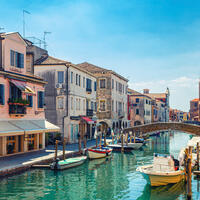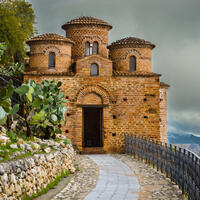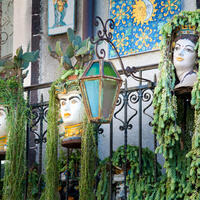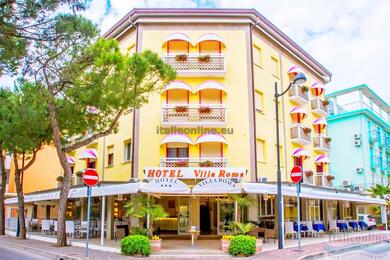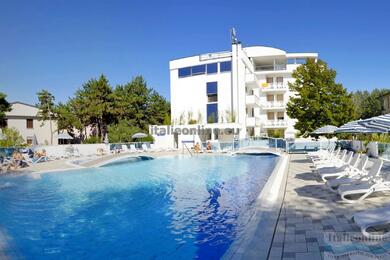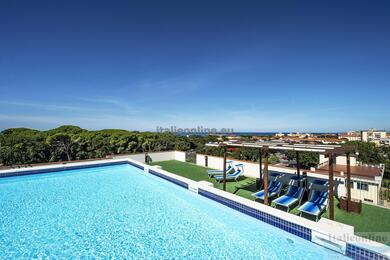The Borromeo Islands (Italian: Isole Borromee) are a group of five islands in Lake Maggiore.on Isola dei Pescatori there is a small fishing village, on the islands of Isola Madreand Isola Bella, where the Borromeans built palaces with extensive ornamental gardens. Isolino di San Giovanni and Scoglio della Malghera are just uninhabited, small rocky islands.
Isola Bella
The most famous and most visited of the islands is Isola Bella, which was originally a small fishing island. In the 17th century, however, Count Carlo III. Borromeo launched an ambitious project to transform the island into a baroque jewel dedicated to his wife Isabella d'Adda (hence the name "Isola Bella").
The palace is surrounded by terraces in the style of an Italian garden, full of exotic plants, fountains and statues. The highest terrace, resembling a giant boat, offers a breathtaking view of the lake. Among the rarest plants here are camellias, magnolias and rare citrus trees. And you can also see white peacocks.
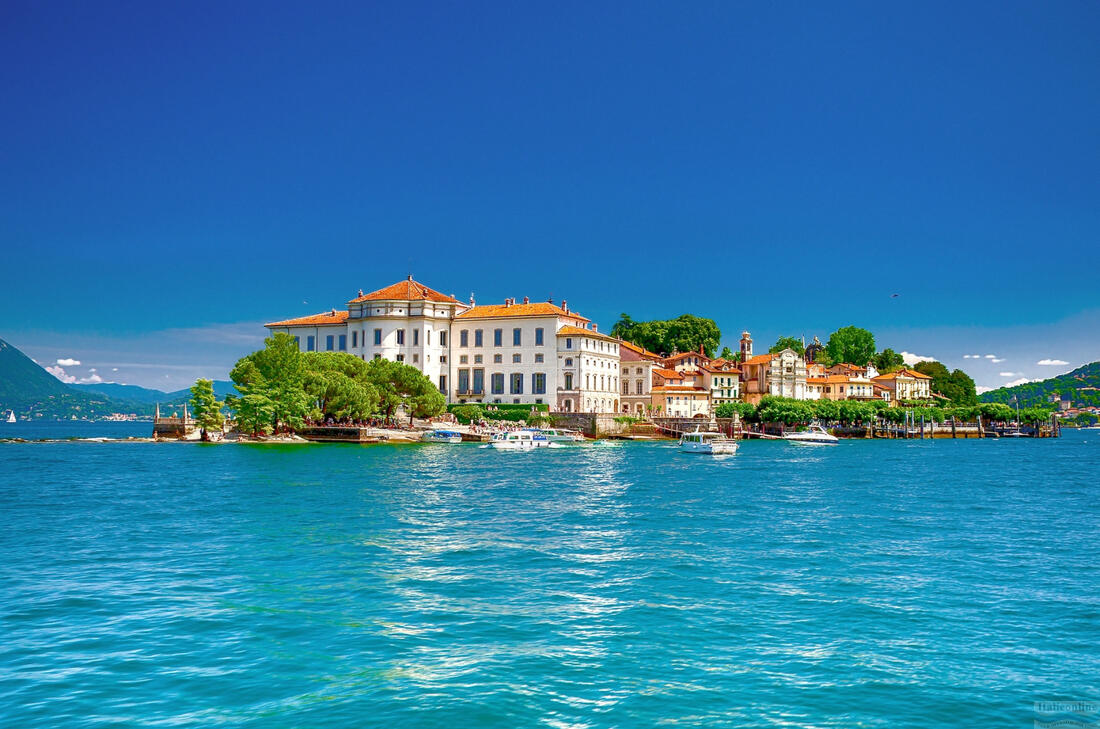
The dominant feature of the island is the Palazzo Borromeo, a monumental palace with richly decorated halls, frescoes, Murano chandeliers and rare furniture. The most remarkable part of the palace is the grotto, a man-made cave room lined with mosaics of shells and stones, designed as a refuge from the summer heat.
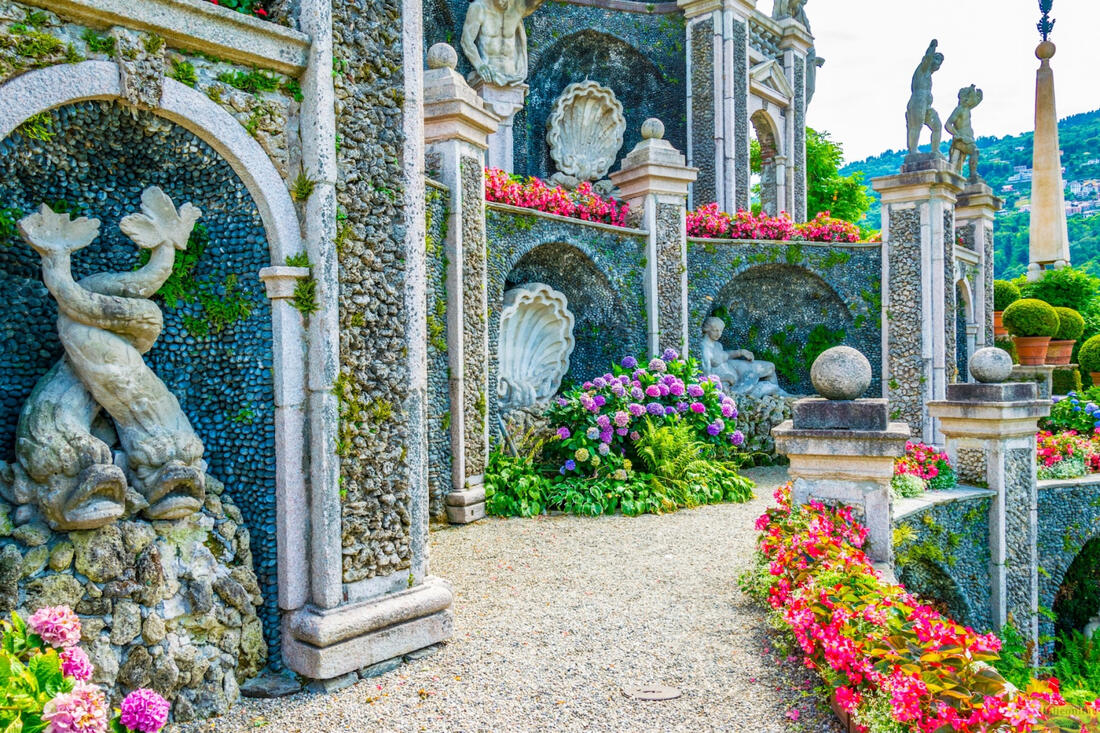
Isola Madre
The largest of the islands, Isola Madre is a quiet retreat away from the crowds. The atmosphere here is more relaxed and the main attraction is the botanical garden, which is one of the most beautiful in Italy.
The gardens are full of exotic plants, among which stand out the mature camellias, azaleas, oleanders, cypresses and rare Himalayan cedars. Thanks to its location, the island has a mild microclimate, allowing the growth of subtropical plants that would not survive elsewhere in the Alps.
Another magnet of the island is the Renaissance palace, which hides historic interiors with murals, period furniture and a unique collection of 18th century theatre puppets.
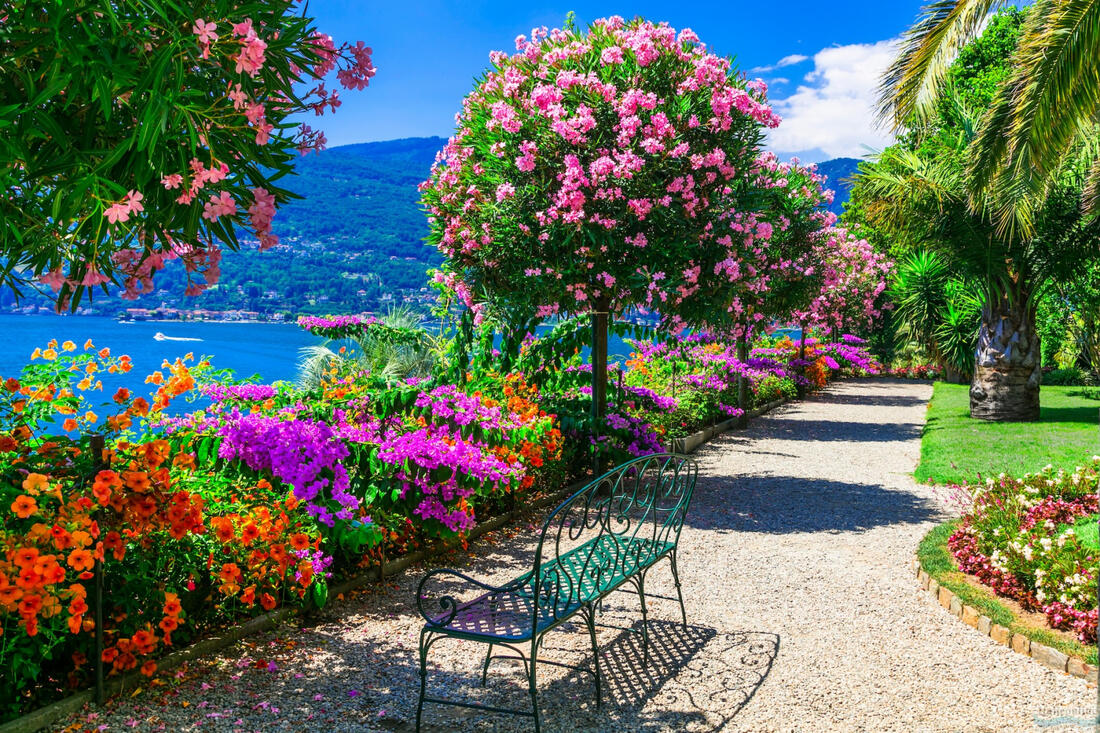
Isola dei Pescatori
Unlike its flashy neighbours, Isola dei Pescatori (Fishermen's Island) has retained its simplicity and traditional character. It is the only one of the Borromean islands that is permanently inhabited.
narrow streets, stone houses with wooden balconies and small harbour restaurants create the authentic atmosphere of an old fishing village. The locals are still fishing and in the restaurants you can taste fresh lake fish prepared according to traditional recipes.
The best time to visit the island is in the evening, when the tourist boats leave and the island is immersed in a peaceful atmosphere at sunset.
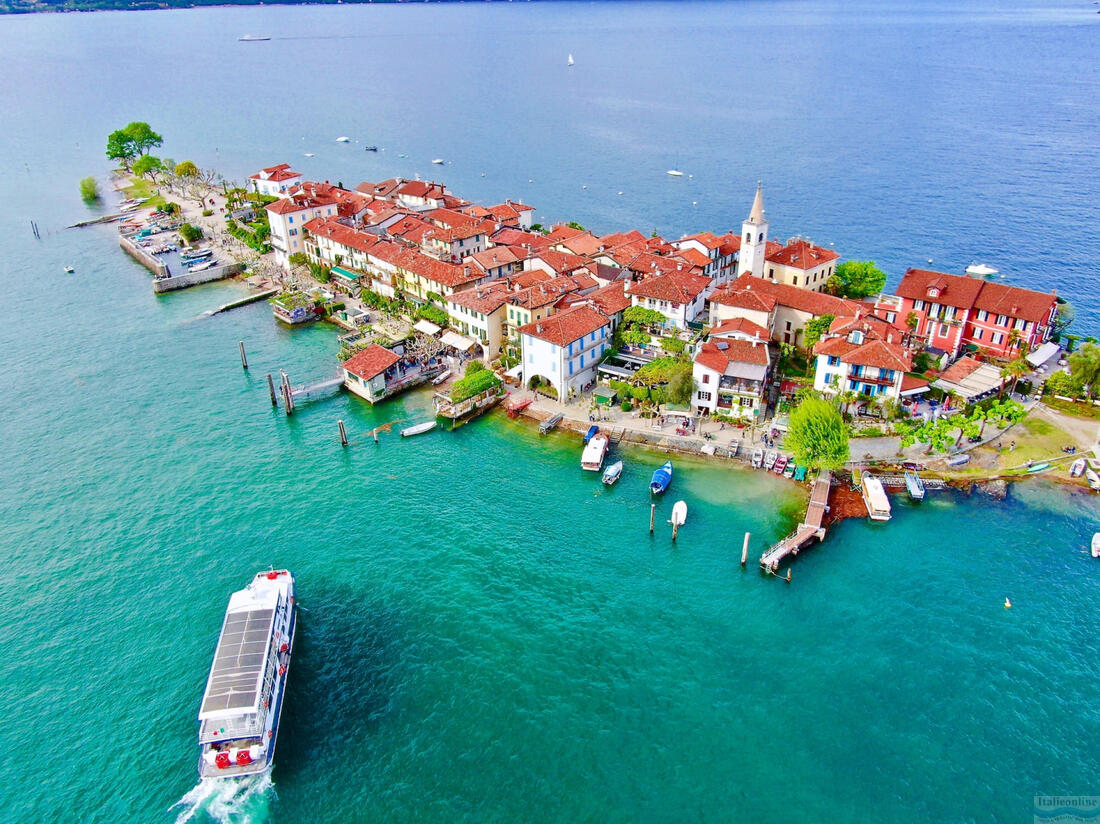
How to get to the Borromean Islands?
The Borromean Islands are easily accessible by boat from Stresa, which is the main starting point for visiting them. A cruise between the islands offers spectacular views and there are various types of excursions to choose from, from day tours to private boat rides.
When is the best time to visit the islands?
- Spring and early summer (April-June) is the ideal time when the gardens are in full bloom and temperatures are comfortable.
- Autumn (September-October) brings a quieter atmosphere and beautiful colourful scenery.
- Summer (July-August) is the main tourist season, so more visitors should be expected.


